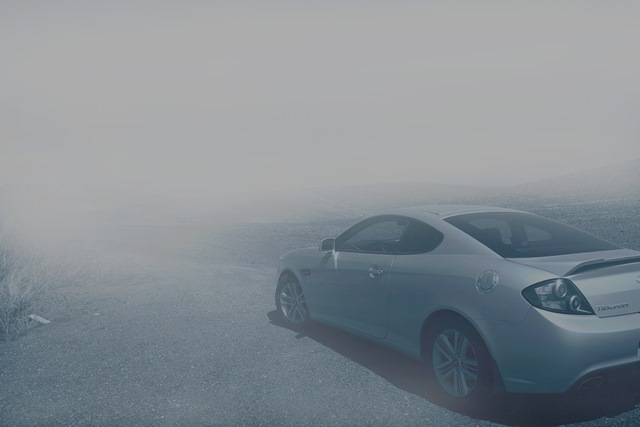
by Adam | Apr 25, 2016 | Credit Repair
If your current spending and saving plan isn’t paying down your debt fast enough, it may be time to change things up a bit to get rid of your debt faster. Although this means making some sacrifices in the short-term, you’ll be saving possibly hundreds of dollars of interest in the long-run. Here are some creative ideas to help you pay down your debt faster. 1. Flip on classifieds If you have a knack for do-it-yourself projects, home repair or improvement, or art and crafting of any sort, you could use that knack to make some money flipping furniture and appliances on classifieds ads. Spend some time each weekend browsing yard sales or classifieds ads and look for items you could paint, touch-up, or even just clean-up. Factor your time and cost of materials into the redo, then re-sell it to make a profit. Use what you earn to pay down your debt. 2. Have a no-spend month Prepare in advance for a no-spend month. You’ll have to decide how disciplined you’ll be, but some ideas to do a no-spend month are: No eating out – prepare recipes and meal plan in advance to avoid it. Give yourself a budget and stick to it. No clothes shopping or recreational shopping. Entertain at home – no movies, bowling, sporting events, etc. Get creative at home with entertainment. Set a gas budget. Plan your errands wisely to eliminate excess driving. Use whatever money you saved to pay down debt. 3. Sell your stuff Chances are you have several clothing items and pairs of shoes you don’t wear. You might have a...

by Adam | Apr 19, 2016 | Credit Repair
A charge-off occurs when a creditor determines that a debt is unlikely to be paid. If a debt is unpaid, usually for 180-days or more, it will probably be declared a charge-off. This allows the creditor to write it off as a tax deduction, since the loan is no longer considered an asset for them. But this doesn’t mean you are off the hook for repaying the loan. On the contrary, your debt is owed until it is paid, and a charge-off is the worst thing you can have on your credit report. If you were under the impression that your debt would just go away if you didn’t pay it, you were sorely mistaken. Not only will you have to repay it, but you will probably have a hard time getting any kind of credit in the future. After all, the purpose of your credit report is to show lenders your ability to repay debt. A charge-off shows them that you’re their worst nightmare – a borrower who will not repay. What can I do about charge-offs on my credit report? The charge-offs will stay on your credit report for seven years, until they must be removed under the Fair Credit Reporting Act. However, some states do not have a statute of limitations for debt collections efforts, so you could find yourself being hassled by collectors and even facing lawsuits years after the delinquency date if you fail to pay your debt. The best thing you can do if you have a charge-off on your credit report is to make a plan to pay it as quickly as...

by Adam | Apr 12, 2016 | Credit Repair
Illness, losing your job, or having another expensive emergency come up can all result in lacking the funds needed to make your car payment. Before you panic and assume that your car will be repossessed, know that you have some options available that can help you keep your car without damaging your credit, depending on your payment history and credit score. Before Your First Missed Payment The worst thing you can do is ignore your problem. No matter what, you must call to discuss that matter with your lender. The sooner you call the more options you’ll have. Repossession is the last thing you and your lender want – it’s a lose-lose for you both. So just know up front that your lender wants to help you, so let them. So when you crunch your numbers and realize you won’t be able to make your monthly car payment, call your lender first thing. They may allow you a grace period, called forbearance, that allows you to skip your payment for a few months. This means they’ll usually just extend your loan period and tack on the missed periods at the end. You may also be able to refinance your loan to lower your monthly payment, but you’ll need to have a pretty good credit score to refinance. If You Have Already Missed a Payment If you missed your payment completely, you can expect a call from the lender inquiring as to what happened. Then they’ll probably begin discussing your options, as mentioned above, but are more likely to charge you a late fee. The good news at this point...

by Adam | Apr 7, 2016 | Credit Repair
Car title loans are financial products that allow you to borrow money using your car as collateral. Usually this means that you’re in a crunch and need some money quick, so you hand over the title of your car and a spare set of keys to the lender to use as collateral. You still get to drive the car in the meantime, assuming you’re paying back the loan on time. Which is very difficult to do. Astronomical Interest Rates The truth is most people have a hard time paying back what they borrowed from a title loan because the interest rates are ridiculously high, and the repayment period is too short. Chances are if you didn’t have the few hundred dollars to cover whatever bill you’re trying to with the title loan, then you’re not going to come up with that amount plus the interest to repay the loan in just 30 days. In states where title loans are unregulated, interest rates range from 30 to 36 percent monthly, which comes out to be 360 to 432 percent APR. In practical terms, this means that people who take out the average amount from a title loan, about $950, end up paying $2140 in interest by the time they finally repay the loan. Paying over $2000 to borrow $900 doesn’t sound like such a good deal, does it? Car Repossession Remember, you put your car up in order to get this loan. So if you somehow don’t come into all of that extra cash during your repayment period, the lender can come take your car. And they will come take...






Recent Comments